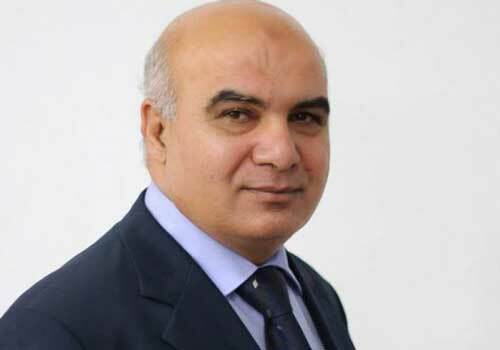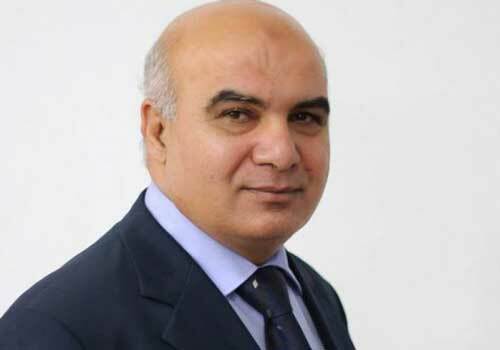Normalization between Israel and Saudi Arabia may not happen soon because the path to this agreement is still complicated and there are things that the Israeli occupying state does not want to give up, the first of which is the brutal occupation of Palestinian land and granting them the right to self-determination, and the second is getting rid of the complex of hostility towards the Arabs and that the Arab world will one day turn into countries that are hostile to Israel. Again, because this complex is built on a real basis, which is that the occupying state does not want to accept a comprehensive and just solution to the conflict in the Middle East, with the establishment of a Palestinian state with full sovereignty over the Palestinian land, with Jerusalem as its capital. Prince (Mohammed bin Salman), the Saudi Crown Prince, said to the American station Fox News, “We are getting closer every day to normalization with Israel, but the Palestinian issue remains important for negotiations towards this rapprochement.” This means that any normalization agreement depends on the extent of Israel’s acceptance of resolving the conflict on the basis of the principle of the two-state solution. The Arab Peace Initiative is a basic reference for any Arab-Israeli relations, and in a report by the Hebrew newspaper The Times of Israel, it was stated that Prince Mohammed bin Salman told his aides that he is not ready to fully normalize relations with Israel and that he is not seeking to reach an agreement with the hard-line government led by Netanyahu.
The Biden administration is trying with all its relations with Saudi Arabia to reach a normalization agreement before next March and is trying to find compromise solutions for all matters that hinder normalization. What concerns it here is not resolving the conflict, nor Saudi Arabia obtaining a civilian nuclear reactor, nor arming Saudi Arabia and supplying it with advanced weapons, but rather what concerns it. Reaching a tripartite normalization deal in which the Democratic Party will be strengthened in the upcoming elections, hindering the formation of a political axis and a Saudi-Iranian-Chinese-Russian security alliance, and changing the map of the Middle East on the basis of creating a new Middle East. This is the map that Netanyahu reviewed before the United Nations General Assembly at its 78th session, and what he talked about about Israeli deployment in the countries surrounding Israel, which was colored green and included Egypt, Saudi Arabia, Jordan, the Emirates, Bahrain, Sudan, and Morocco. He drew in red pen the corridor that connects Asia to Europe, passing through the Emirates, Saudi Arabia, Jordan, and Israel, considering This corridor will create a new Middle East in which global trade lines will be facilitated and shortened, and energy and oil lines will extend to reach Europe at a lower cost. The benefit, of course, will accrue primarily to Israel and not to the countries of the Arab region.
The occupying state does not want to give up the military occupation of Palestine, does not want to return the land it occupied in 1967 to the Palestinians at least, does not want the Americans to give an independent nuclear reactor to Saudi Arabia, does not want Washington to raise the level of Saudi Arabia’s armament so that Saudi Arabia does not outperform Israel, and does not want Israel on the one hand. Another is to stop the movement to change the historical reality in Jerusalem and the holy sites, and does not want to recognize the Arab Peace Initiative as a legitimate reference for resolving the conflict. At the same time, it wants it and the United States to draw a map of new relations in the Middle East through which a new Middle East will be created in which the occupying state is a politically acceptable state. Popularly, it is integrated into large security alliances with countries in the Arab region. The Saudi Foreign Minister did not comment on the issue of the new Middle East in his speech before the United Nations General Assembly, but he said, “Security in the Middle East requires accelerating the search for a just and comprehensive solution to the Palestinian problem on the basis of international law and the Arab Peace Initiative in a way that guarantees the right of the Palestinian people to establish their state.” "The Independent Authority on the borders of June 4, 1967 said that Saudi Arabia rejects any obstacles to resolving the Palestinian issue."
It is clear that the Biden administration does not want to put pressure on Israel to respond to Saudi demands regarding the Palestinian conflict, and does not want the conflict to end with the establishment of a fully sovereign Palestinian state with Jerusalem as its capital. Otherwise, it would have done so and pressured Israel to complete the Oslo Accords, which is now only in name, and the United States does not trust it. Also in enabling Saudi Arabia to possess a nuclear reactor, it therefore proposes that America and American experts undertake uranium enrichment on Saudi soil through an American nuclear reactor to serve civilian goals. The question that arises is: Is there a relationship between the tripartite normalization agreement between Saudi Arabia, America and Israel and the map of the new Middle East? We say yes, and Saudi Arabia may not allow the use of its lands, at least in the first stage, except after an agreement in which Saudi Arabia fulfills all its demands. With this complexity, the conflict remains the final word in achieving the plans of America, Israel, and the UAE for a new Middle East in which Israel takes the lead in a new defense and security alliance. I do not believe that the new Middle East project will be achieved from the perspective that Israel sees and that Netanyahu spoke about in the context of these givens.
Resolving the Palestinian-Israeli conflict in a just way that achieves security and stability is the true gateway to any new Middle East, and the Palestinians obtaining their full rights is the criterion for the success of this plan, and without the Palestinians obtaining their political rights, the occupying state acknowledges ending the occupation and recognizes the principle of the two-state solution, the Arab Peace Initiative, and international legitimacy resolutions. As a basis for negotiations to end the conflict, there will be no new Middle East. If the occupying state and its strategic partner, the United States, try to reduce this solution to temporary solutions that do not give the Palestinians their political rights, then attempts to create a new Middle East will remain mere political fantasies because any new Middle East is the criterion for the acceptance and conviction of the peoples. By transforming the occupying state into a state of true peace that lives in security and stability alongside a Palestinian state in which the Palestinian people enjoy freedom, security, and equal peace, and other than that, the new Middle East will be nothing but an imaginary plan, and its implementation on the ground will not change the nature of the Arab nation and its orientations towards Israel in any way, because Israel has not changed its hostile tendencies towards the Palestinian Arab people or Palestinian rights at all, and the Palestinian issue will remain the gateway to all positive change and the address of the new Middle East.
OPINIONS
Thu 28 Sep 2023 9:15 am - Jerusalem Time
Resolving the Palestinian-Israeli conflict is the real gateway to a new Middle East

Tags
MORE FROM OPINIONS
Between ballot boxes and circles of fire: The mistake of bringing Hamas into the Palestinian...
Dr. Ibrahim Nairat
This is the difference between us and them
From pampered country to outcasted
Weapon of demonstrations in support of Palestine
International positions and promising statements
Legal opinion on the recent Cabinet decision to prevent land settlement in Area C and...
Aid, Negotiations, and Threats
Baha Rahal
Unprecedented political developments
Hamada Faraana
Between Gaza and Troy
Nabhan Khreisha
Final terms of the exchange deal, the truce, and the decisive hours
Hamza Al-Bashtawi
Hussein was two minutes late to his family due to the timing of the missile.
Written by Abdul Salam Al-Rimawi
Gaza and the Collapse of the Global Moral Compass
Translation for "Alquds" dot com
Trump after the Gulf is not the same as before
Assas Media
Amid Cease-Fire Talks, Israel Says It Has Expanded Ground Operations in Gaza
New York Times
One Hundred Years of Tranquility
Strategic goals collapsed and the Palestinians found themselves in a "political Bermuda Triangle."
On the anniversary of the Nakba, confronting the truth of what happened is the first...
In the name of the burned bodies!
Issam Bakr
Silent Annexation: How Is Israel Implementing Annexation in the West Bank Without an Official Announcement?
Time of blood, death and destruction
Mustafa Ibrahim







Share your opinion
Resolving the Palestinian-Israeli conflict is the real gateway to a new Middle East